Preface
The very thought of this book on Curriculum Development came to my mind when I first started teaching this subject at postgraduate (M.Ed.) level a decade back, when my professor said there are hardly any books available in this area, especially authored by Indians. And he also used to refer to the only book, which he used to call as a bible in this area. It took almost a decade for me to really get convinced to write this book and formulate this idea.
When students started asking which book is the best and which book covers most of the prescribed syllabus I used to cut a sorry face and say very few books written by foreign authors are available. When they suggested that I should write a book. I thought of it and a professor of mine encouraged and said you can do it. He enquired several times whether I have started it or not.
In this kind of struggle and thinking and a continuum of teaching, one year back I have started noting down the points systematically in a book, which I planned to teach in the classroom every day. Those referral points and the further referring of some more books in curriculum helped me to complete this task. I tried to make a comprehensive presentation of different concepts, which run into volumes in most of the books written by foreign authors.
The present book has been divided into six units. It started with a brief introduction to curriculum i.e. Nature, meaning of curriculum and curriculum theory. The second unit gives a brief note on the historical development of the curriculum from an Eastern point of view. And also a comprehensive view from western point of view. Then, the third unit gives an overview of the curriculum processes which includes the formulation of objectives, selection of curriculum experiences and learning experiences, organization of curriculum, content and learning experiences diagnosis in curriculum development and a conceptual framework for curriculum design. The fourth unit through light on what bases are required in curriculum development like knowledge, sociological, psychological and philosophical bases. The fifth unit covers the evaluation of the developed curriculum, which gives an insight into the existing models of evaluation. And finally in the sixth unit, includes a critical discussion on curriculum change, strategies, factors affecting curriculum change. It also pays attention to curriculum inquiry or research and concludes with an insight to plan for future and futuristic curriculum.
After the completion of this book I still feel that I could have included some more rich experiences that I have encountered in the arena of curriculum development, reforms in curriculum and so on. However, I invite suggestions from well-wishers and the readers, students and teachers and intelligentia to improve this book and its mode of presentation, and also with regard to content and any other aspects related to the book.
Dr. T. Mrunalini

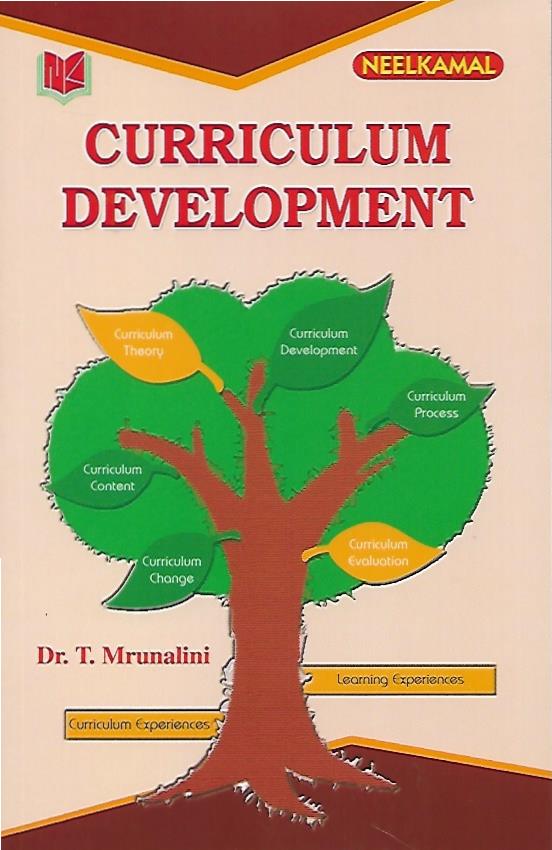
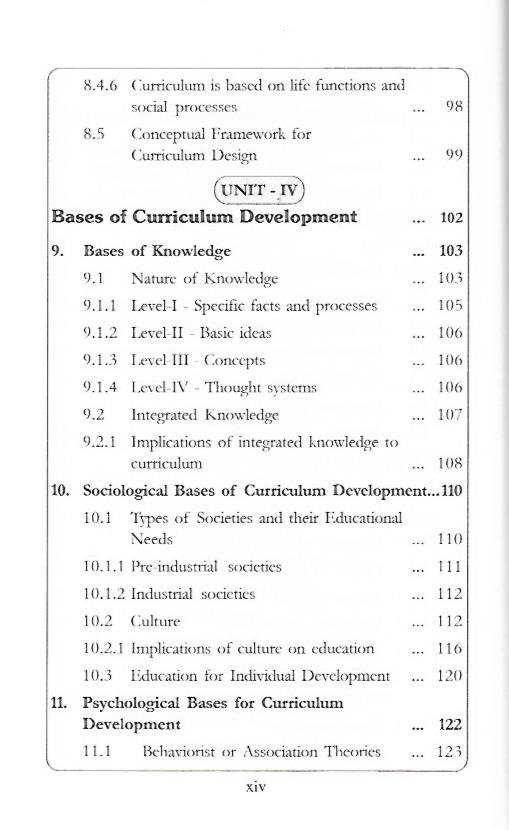
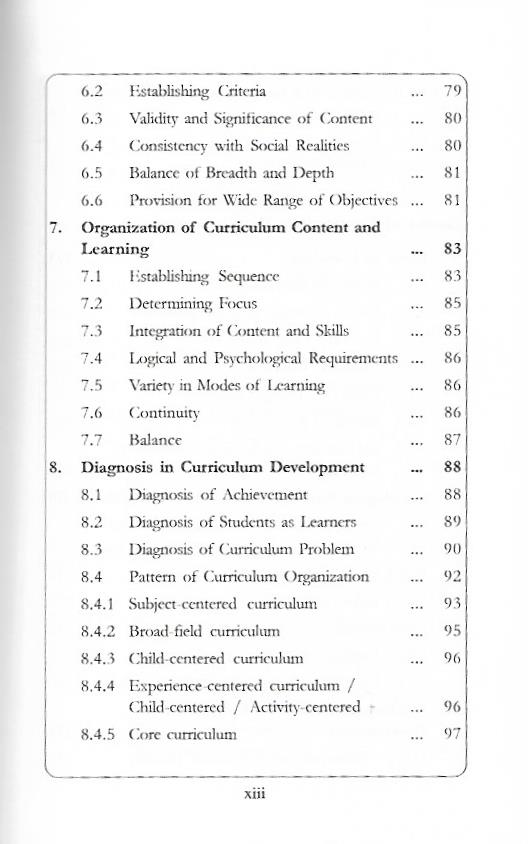
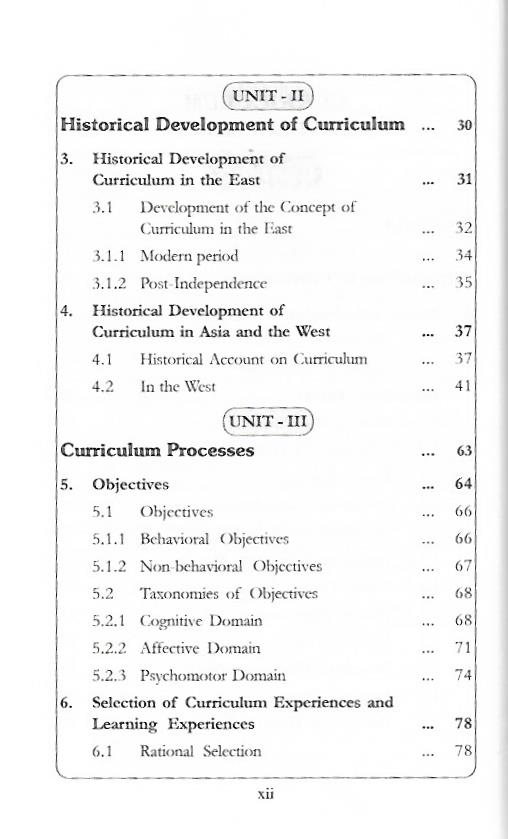
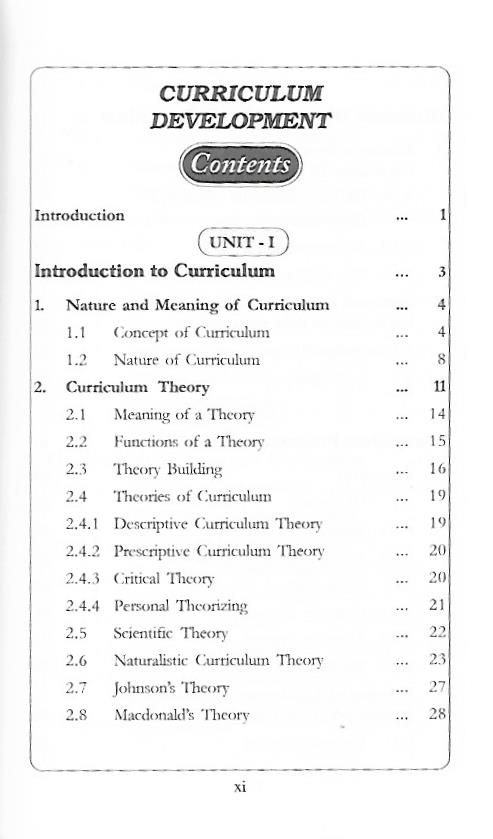
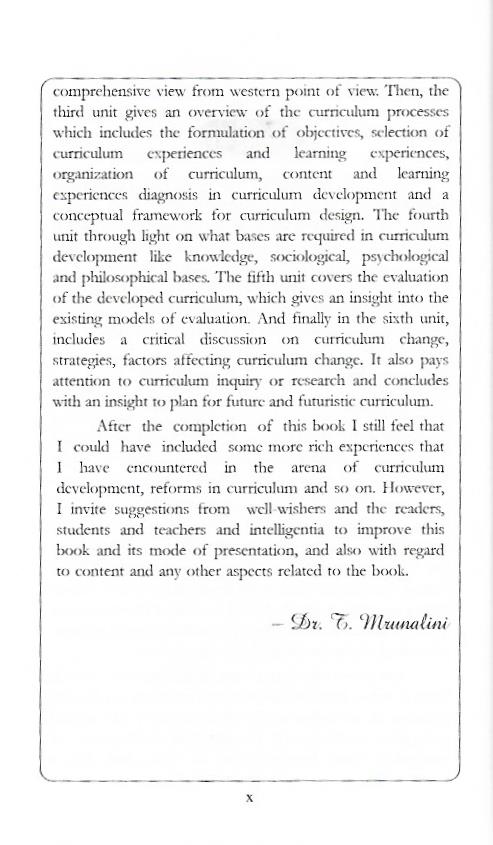
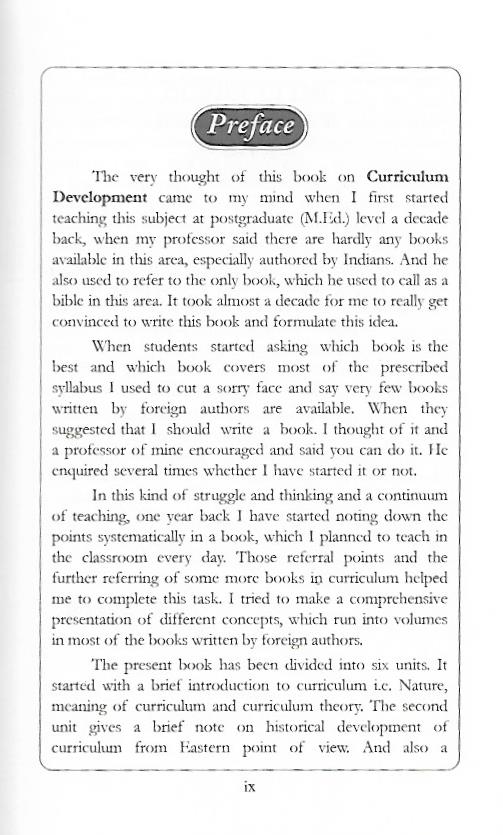
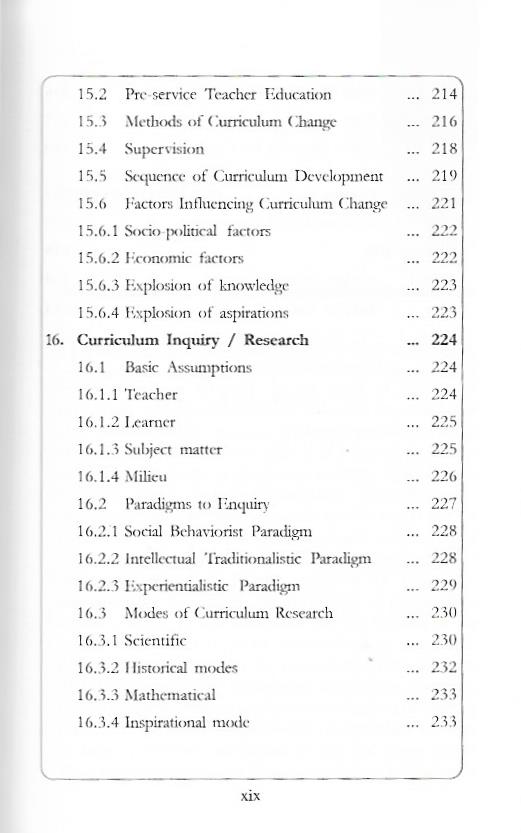
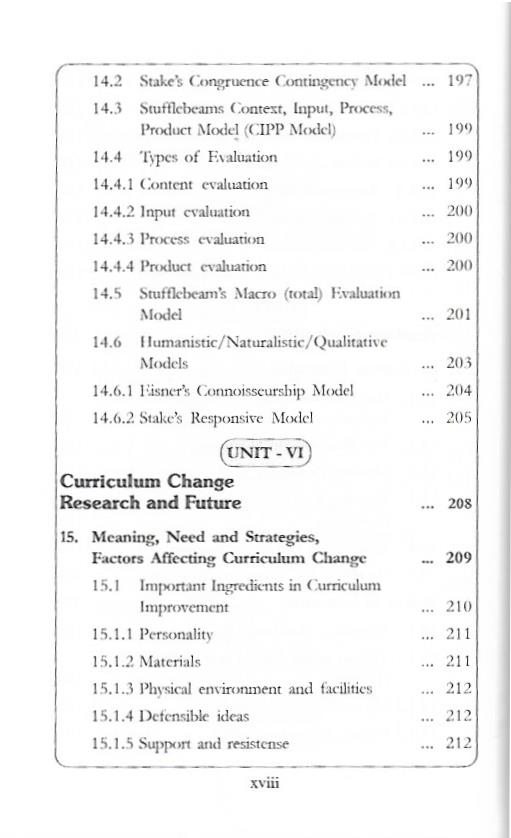
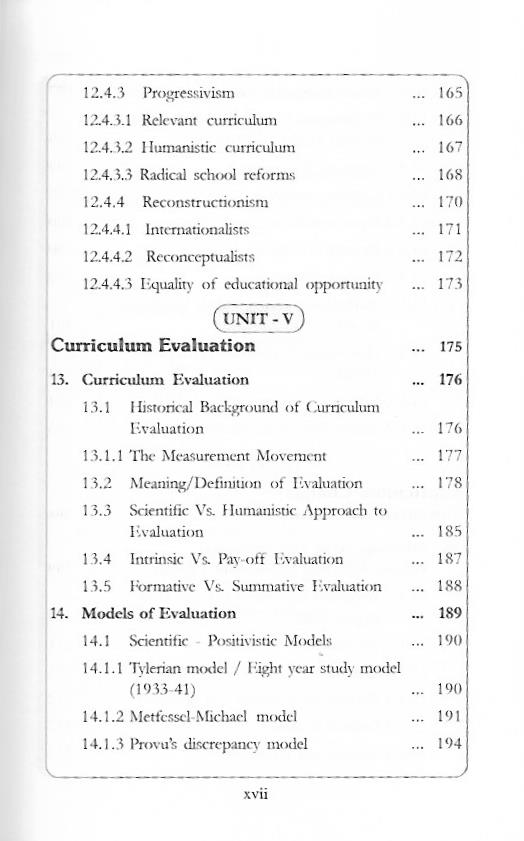
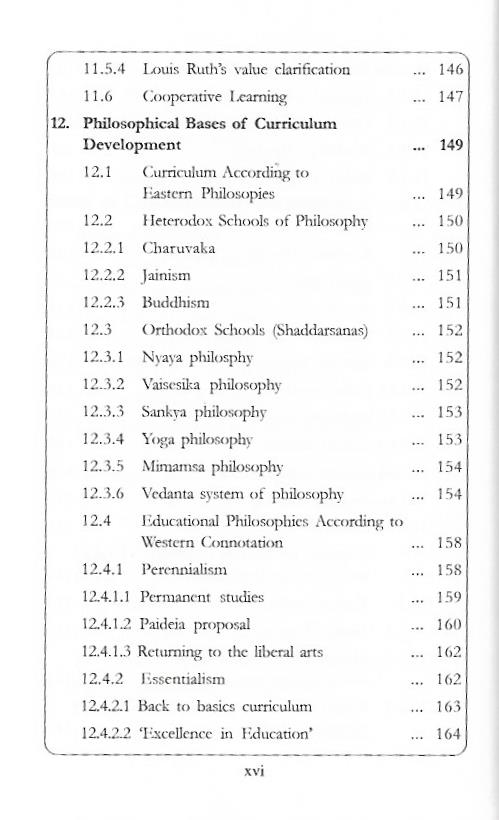
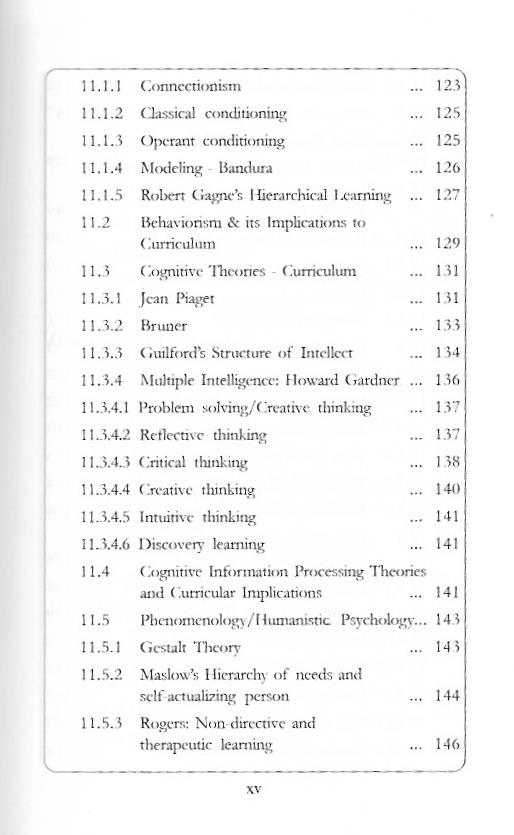
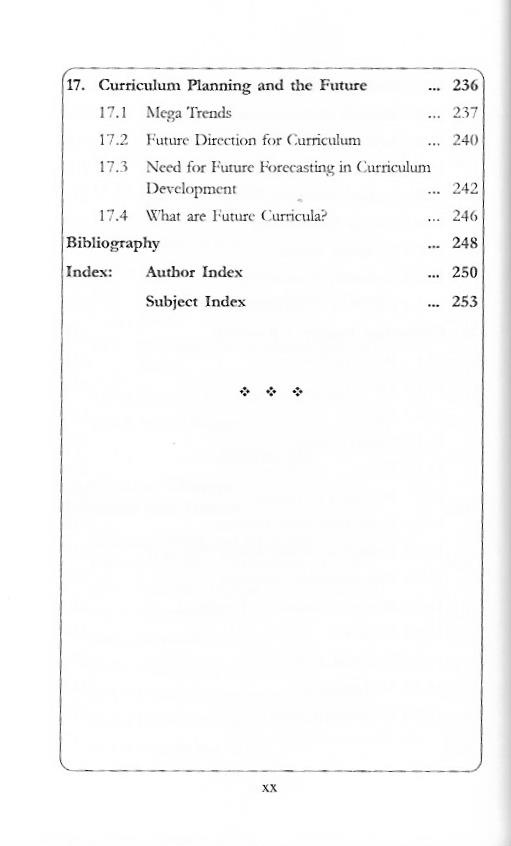
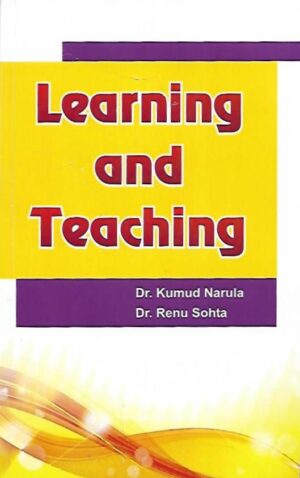
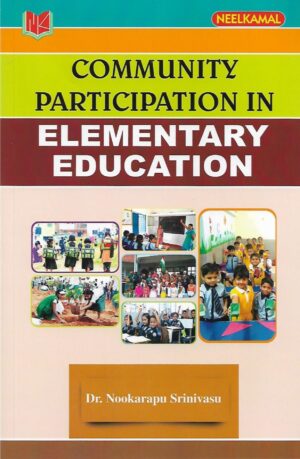
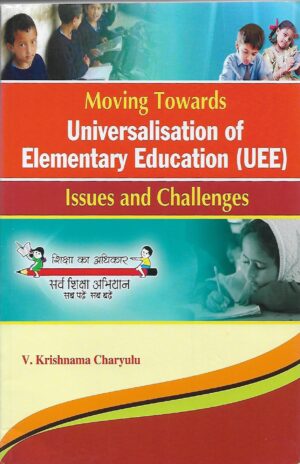

Reviews
There are no reviews yet.